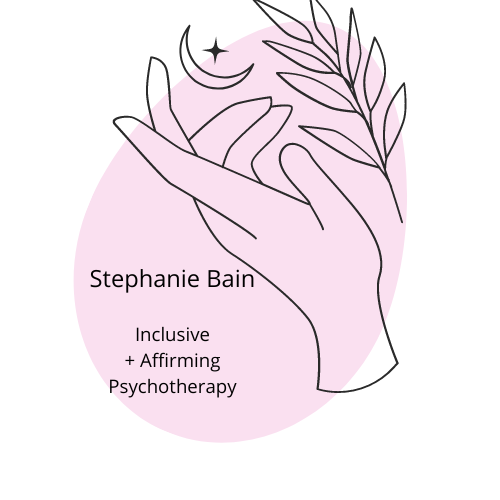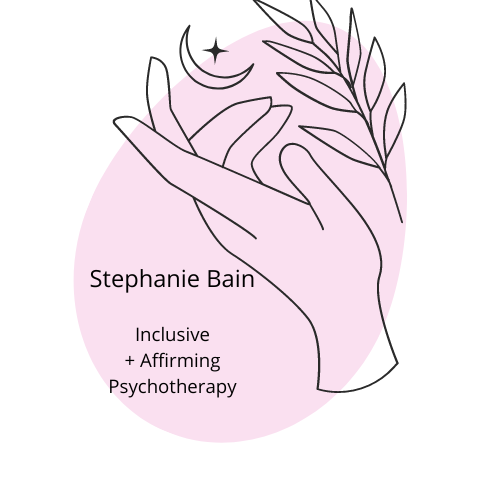What is EMDR Helps people process traumatic experiences and alleviate symptoms associated with trauma, anxiety, phobias
|
Potentially Good Candidates for EMDRIndividuals suffering from PTSD or CPTSD
|
Potential Outcomes for EMDRDecrease in fear around triggers and phobia
|
Curious to know if you are a good fit for EMDR? Looking for an EMDR therapist in Oakland, CA?
Simply, EMDR helps process trauma...
What trauma does...
"Often, when something traumatic happens, it seems to get locked in the brain with the original picture, sounds, thoughts, feelings...since the experience is locked there, it continues to be triggered whenever a reminder comes up. It can be the basis for a lot of discomfort and sometimes a lot of negative emotions, such as fear and helplessness, that we can't seem to control." --Francine Shapiro, Eye Movement Desensitization and Reprocessing [EMDR] Therapy
"Often, when something traumatic happens, it seems to get locked in the brain with the original picture, sounds, thoughts, feelings...since the experience is locked there, it continues to be triggered whenever a reminder comes up. It can be the basis for a lot of discomfort and sometimes a lot of negative emotions, such as fear and helplessness, that we can't seem to control." --Francine Shapiro, Eye Movement Desensitization and Reprocessing [EMDR] Therapy
How does EMDR work?
"[the applications of] EMDR seems to unlock the system and allow your brain to process the experience. That may be what happens in REM, or rapid eye movement, sleep, when our most intense dreaming takes place...[this] appears to be involved during the processing of unconscious material." --Francine Shapiro, Eye Movement Desensitization and Reprocessing [EMDR] Therapy
"[the applications of] EMDR seems to unlock the system and allow your brain to process the experience. That may be what happens in REM, or rapid eye movement, sleep, when our most intense dreaming takes place...[this] appears to be involved during the processing of unconscious material." --Francine Shapiro, Eye Movement Desensitization and Reprocessing [EMDR] Therapy
|
During an EMDR session, the therapist guides the client through a series of bilateral stimulations, which can be achieved through eye movements, auditory tones, or tactile sensations. These bilateral stimulations are designed to activate both hemispheres of the brain, facilitating the processing of traumatic memories. The client is asked to bring to mind a distressing memory while simultaneously focusing on the therapist's hand movements or other bilateral stimulation. This process aims to promote adaptive information processing, enabling the individual to reprocess the traumatic memory in a more adaptive and less distressing manner.
The effectiveness of EMDR has been supported by numerous studies, and it is recognized as an evidence-based treatment for post-traumatic stress disorder (PTSD) by reputable organizations such as the American Psychiatric Association and the World Health Organization.
The effectiveness of EMDR has been supported by numerous studies, and it is recognized as an evidence-based treatment for post-traumatic stress disorder (PTSD) by reputable organizations such as the American Psychiatric Association and the World Health Organization.
What the process may entail...
EMDR reprocessing is what makes EMDR therapy stand out; however, reprocessing (bilateral stimulation while recalling certain memories, feelings, and experiences) is only one part of the therapy. EMDR can take place as part of other work in individual or couples therapy. Even if you come to therapy specifically for EMDR reprocessing, therapy will still include:
- Robust history taking
- Assessing whether EMDR is likely to be effective and safe
- Ensuring clients can successfully use regulation skills and are generally stable in their lives
- Building trust and safety between the therapist and client
The research and more info:
Research.
National Institute of Health - EMDR for Complex Trauma (C-PSTD, Complex PTSD)
The CPTSD Foundation on EMDR for Complex Trauma
EMDR For Attachment Trauma
Change in Adult Attachment with EMDR
EMDR Effectiveness Studies
Information.
Overview - Experiencing EMDR Therapy
Short Video Describing EMDR
EMDR Therapy and Dissociation
EMDR and Sexual Assault and Intimate Partner Violence
EMDR and OCD
National Institute of Health - EMDR for Complex Trauma (C-PSTD, Complex PTSD)
The CPTSD Foundation on EMDR for Complex Trauma
EMDR For Attachment Trauma
Change in Adult Attachment with EMDR
EMDR Effectiveness Studies
Information.
Overview - Experiencing EMDR Therapy
Short Video Describing EMDR
EMDR Therapy and Dissociation
EMDR and Sexual Assault and Intimate Partner Violence
EMDR and OCD
A few more things...
Practically.
Individual sessions are provided during a regular weekly appointment. I do not provide every other week or as-needed therapy sessions for new clients. I have found that committing to regular, consistent therapy sessions is crucial for experiencing change. Here are my current rates and my current office policies.
Who I work with.
I work with individuals who have been told they're “too sensitive” or “too much,” feel misunderstood, or feel alienated from the mainstream. I work with non-traditional families or partners looking for a therapist who "gets it." The number one reason clients reach out is they are experiencing some kind of distress--and they would like to experience less of it. This distress may arise from our relationships with friends, family, partners, jobs, school, systems, or from our emotions and thoughts, or from our behavior. Many want to make a change but are not sure how--therapy is great for that. Others simply want to deepen their connection with themselves, their community, and the world around them--therapy is great for that, too.
Who am I?
About me.
Individual sessions are provided during a regular weekly appointment. I do not provide every other week or as-needed therapy sessions for new clients. I have found that committing to regular, consistent therapy sessions is crucial for experiencing change. Here are my current rates and my current office policies.
Who I work with.
I work with individuals who have been told they're “too sensitive” or “too much,” feel misunderstood, or feel alienated from the mainstream. I work with non-traditional families or partners looking for a therapist who "gets it." The number one reason clients reach out is they are experiencing some kind of distress--and they would like to experience less of it. This distress may arise from our relationships with friends, family, partners, jobs, school, systems, or from our emotions and thoughts, or from our behavior. Many want to make a change but are not sure how--therapy is great for that. Others simply want to deepen their connection with themselves, their community, and the world around them--therapy is great for that, too.
Who am I?
About me.
|
Stephanie Bain (she/her/hers)
Licensed Marriage and Family Therapist, LMFT #137288 [email protected] | 1-510-545-9329 445 Bellevue Ave, #6B, Oakland, 94610 3021 Telegraph Ave, Suite C, Berkeley, CA 94705 Trauma Therapist in Oakland, CA and Berkeley, CA
Queer Couples Therapist in Oakland, CA and Berkeley, CA |









